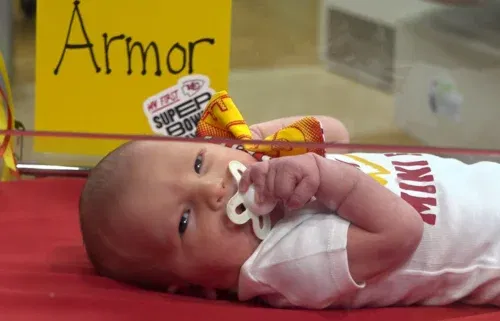Edwards-Helaire sheds light on dealing with PTSD

By Jacob Meikel
Chiefs running back Clyde Edwards-Helaire becomes the latest professional athlete to open up about his struggles with mental health.
The fifth-year running back, known for his charismatic personality on the team, unveiled earlier in the week that he has been dealing with post-traumatic stress disorder, a condition that affects nearly 4% of U.S. adults according to the World Health Organization.
Edwards-Helaire had missed practice at training camp earlier in the week, and went to X on Monday to address his situation saying “Living With PTSD is no small feat, it’s hard and very overwhelming. Within the last month I’ve had many flare ups and the amazing staff here at the #Chiefs have been helping me get through some tough times,” Edwards-Helaire wrote. “I’ll be back rolling next Practice! All Love, Glydro.”
Edwards-Helaire cited what he called a “self-defense situation” back in December of 2018 as a memory that played a role in his mental health development, though he says not everything stems from that. He also mentions friends of his subject to gun violence during his Thursday media availability after training camp practice.
“I’m visiting, you know, some of them, some of my friends who are at gravesites and doing those things,” Edwards-Helaire said. So it’s different when you feel like your whole life is a football player or everything is geared towards this. But there’s so much more to just putting the pads on.”
A Baton Rouge, Louisiana, native, Edwards-Helaire grew up with parents who both spent time in the military. His mom served in the Army, while his father is a former Marine. He feels his parents are a real part of his support system as he continues to deal with PTSD. Edwards Helaire also has the support from those within the Chiefs organization. He cites assistant athletic trainer Julie Frymeyer as a person who got him in the right direction for help with his mental health. Edwards-Helaire re-signed with the Chiefs on a one-year deal this offseason.
“I have my support system here, but I also have my support system at home, and that’s the biggest thing,” Edwards-Helaire said.
The former LSU Tiger detailed his struggles with PTSD on Thursday, breaking down how bad the conditions for him can get. He says sometimes he’s been admitted into the hospital at times when he says he “can’t stop throwing up.”
When asked on Thursday if there was any advice he could give to anyone who is also dealing with PTSD, Edwards-Helaire says to seek help if possible, and if anyone knows someone who is dealing with PTSD, avoid bringing up the trauma as much as possible.



